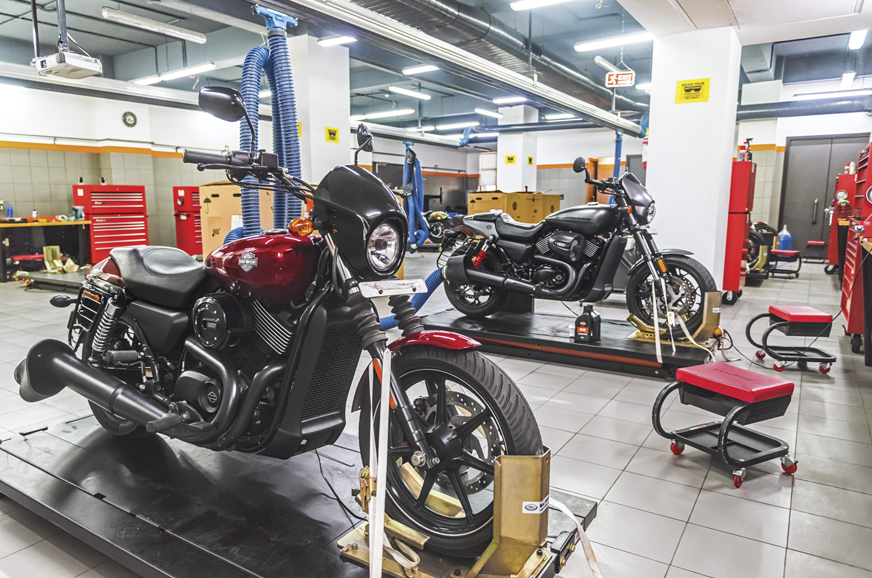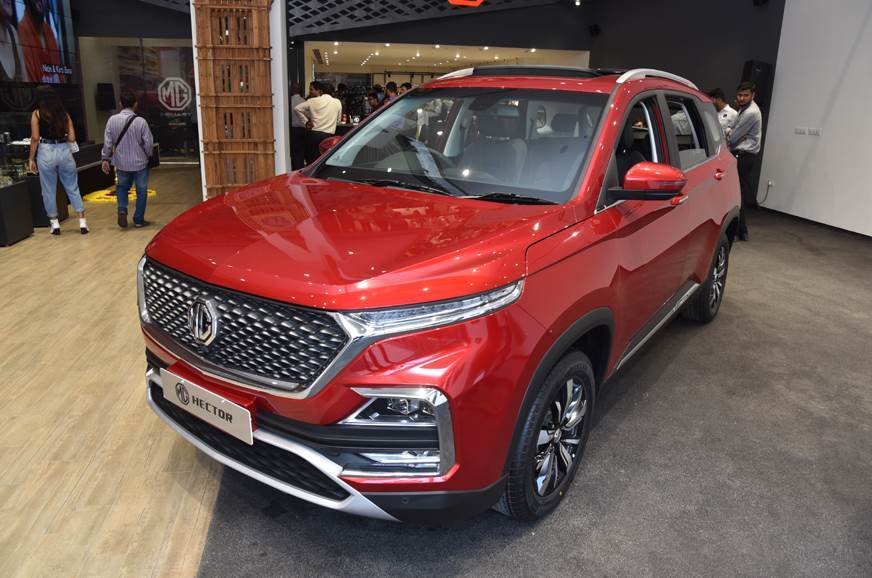
There are two types of motorcyclists – ones who sense something is wrong with their machines and rush to break open the tool-set with glee, and then there are those like me. When something goes wrong with one of my bikes, my immediate reaction is to speed dial my friend – and one of Mumbai’s top motorcycle-whisperers – Zubinn Ponnappa to diagnose and fix the issue. As much as I love sitting down and cleaning my machines, doing any serious mechanical work beyond tightening a few bolts and lubing the chain creates a sense of anxiety that I rather avoid. I’d much rather have someone more qualified take care of them. But if there’s anything this job has taught me, it’s that the joys of discovery lie beyond the warm embrace of a comfort zone. So when the invite came for the 2019 edition of the unique Harley-Davidson University, I said, what the hell, might as well go get my hands dirty under some expert supervision.
Unbox therapy
The Harley-Davidson University is only open to employees but the company occasionally lets journalists in to share just how detailed the manufacturing and maintenance procedures can get. Last year, Firoze got to learn how to strip down and rebuild a Milwaukee-Eight V-twin motor; but this year, the syllabus was completely different. This time, we’d be going through the motions of a detailed service on the popular Street 750 models. Before we got started, Harley had something else in store for us that would make the average YouTuber delirious with excitement. Before us lay the biggest cardboard box I’d ever seen and it turned out that we were going to get to ‘unbox’ a brand-new Street 750 – straight from the factory.
We got to experience the oddly satisfying sensation of using a powered tool to remove over a dozen screws, before we could lift the box and expose the bike underneath. Unlike what you see in a YouTube unboxing video, there’s a bit more to go through here aside from peeling off a protective sticker and firing the bike up. In fact, the official Harley-Davidson PDI (pre-delivery-inspection) document given to us had a massive list of 26 items that had to be checked off for the process. This included everything from basic stuff like checking for damage and/or missing parts to installing the main fuse and fuel-pump fuse which comes disconnected from the factory. About an hour later, we’d adjusted the handlebar, levers and headlamp, set the rear shock pre-load to the customer’s requirement, checked the battery voltage, ran an engine diagnostic scan and polished the paintwork. It was finally time to fire the bike up. A sense of accomplishment (and relief!) washed over when the 749cc V-twin smoothly rumbled to life with a quick press of the button.
Lip service
After PDI, we moved onto the main agenda for the day. Split into teams of four, each group was presented with a Street 750, except for mine, which got a Street Rod instead. An oil change and a poorly timed withdrawal of my hand while undoing the drain bolt made for an entertaining start to the proceedings. Let’s just say I’m lucky we warmed up the engine just the right amount and the oil wasn’t scorching hot. New oil filter installed and fresh oil poured in, two of us got down to cleaning the air filter, while the other two began to bleed the brakes. Since the Street Rod wears its air intake exposed on the right side getting to the filter was easy; but we had double the work to do with the brakes because our bike had two front discs!
The tagline for this event was, ‘More than an oil change’ and boy, was that true. Over the afternoon, we fumbled our way through a number of other tasks, like checking the brake pads, testing the coolant quality, making sure the radiator was clean, lubing the accelerator and clutch cables, adjusting the clutch and more. The final big task was learning how to adjust the tension in the belt drive, which is a similar process to what you do with a motorcycle chain but with the use of a special belt-tension measuring tool.
Mechanical man
The nice way to end this would be to regale you with tales about how I’m now transformed to the type of motorcyclist who waits for things to break, just so I can fix it. The truth is, Zubinn will always be on my speed dial, but I am grateful for the chance to have been able to safely practise basic mechanical jobs that have, so far, only been theory knowledge. If you’re nervous like me, I encourage you to convince your friendly local mechanic to let you practise on your own bike at their premises, under their eye. Who knows, it might be the last time your motorcycle ever goes there.
from Autocar India https://ift.tt/2YD7ijK
via IFTTT

No comments:
Post a Comment